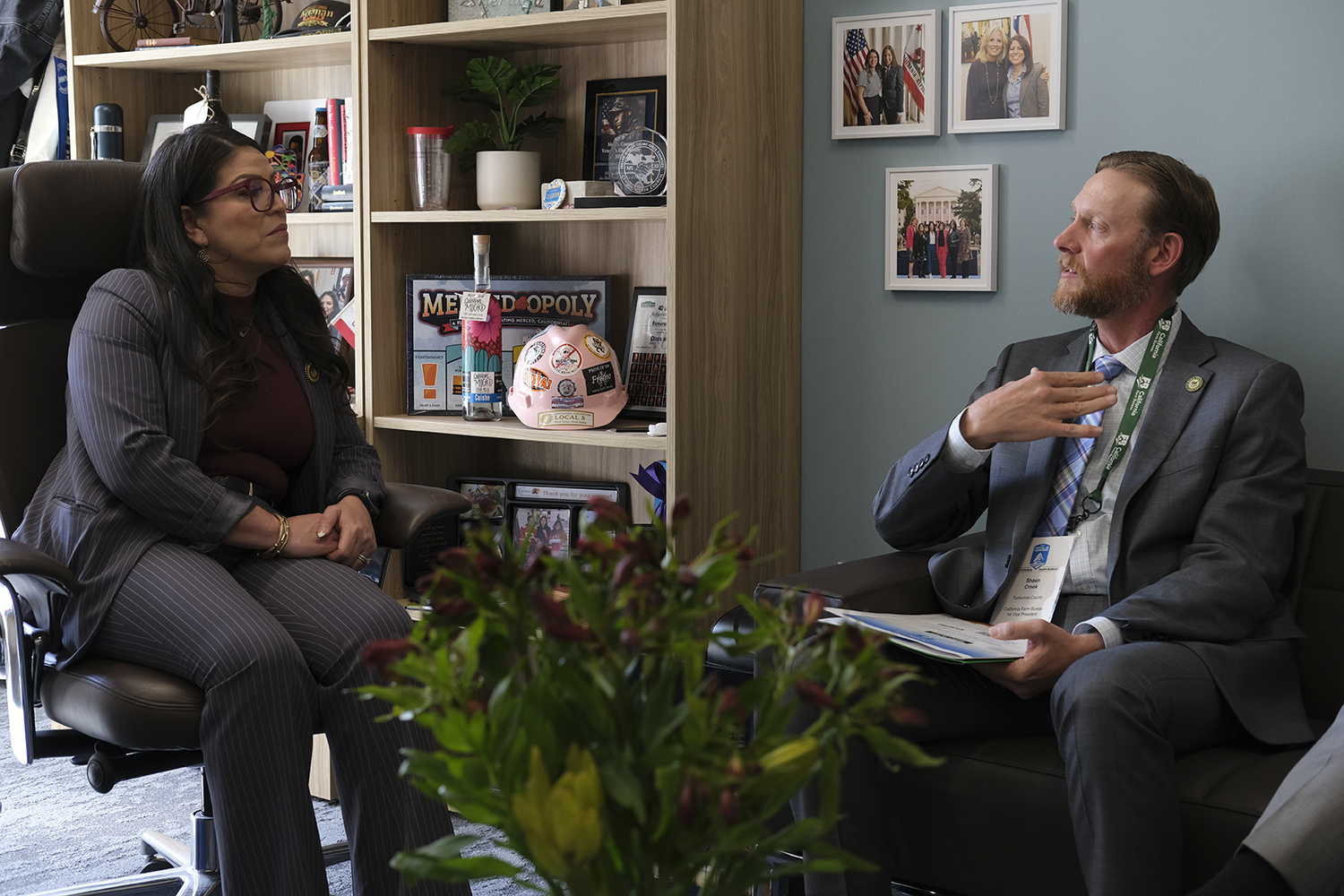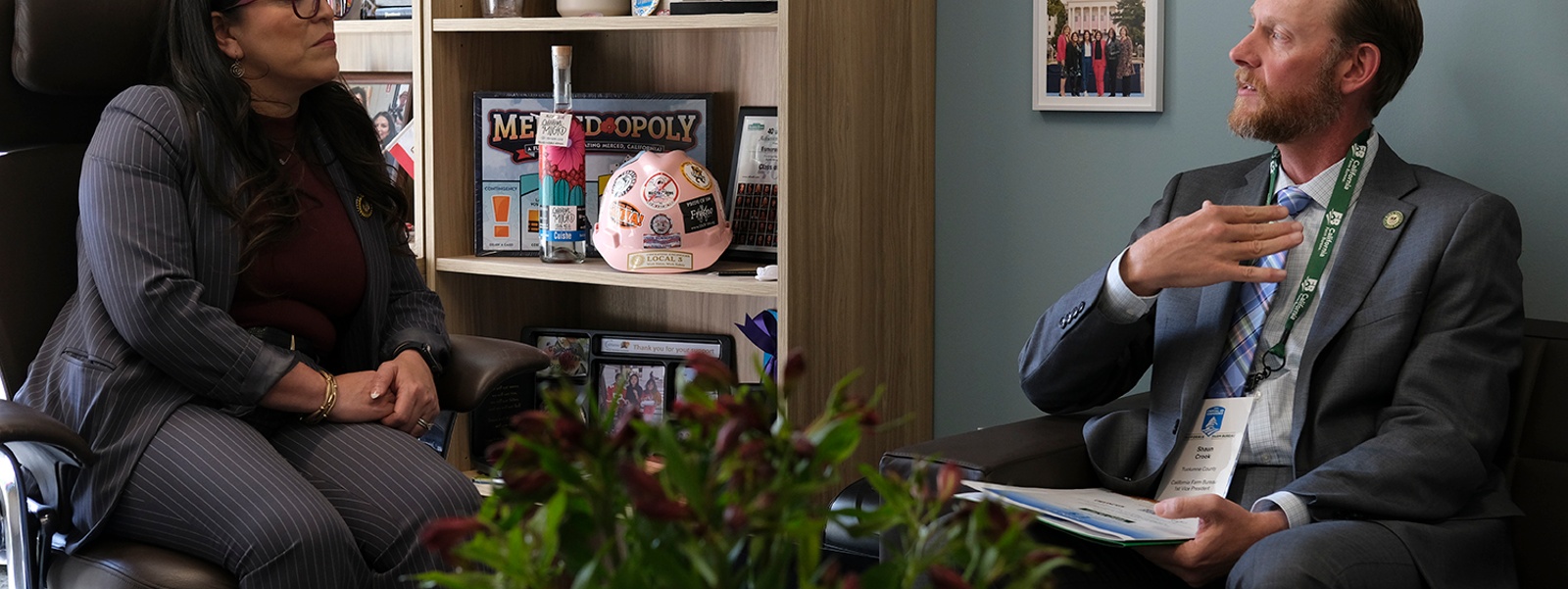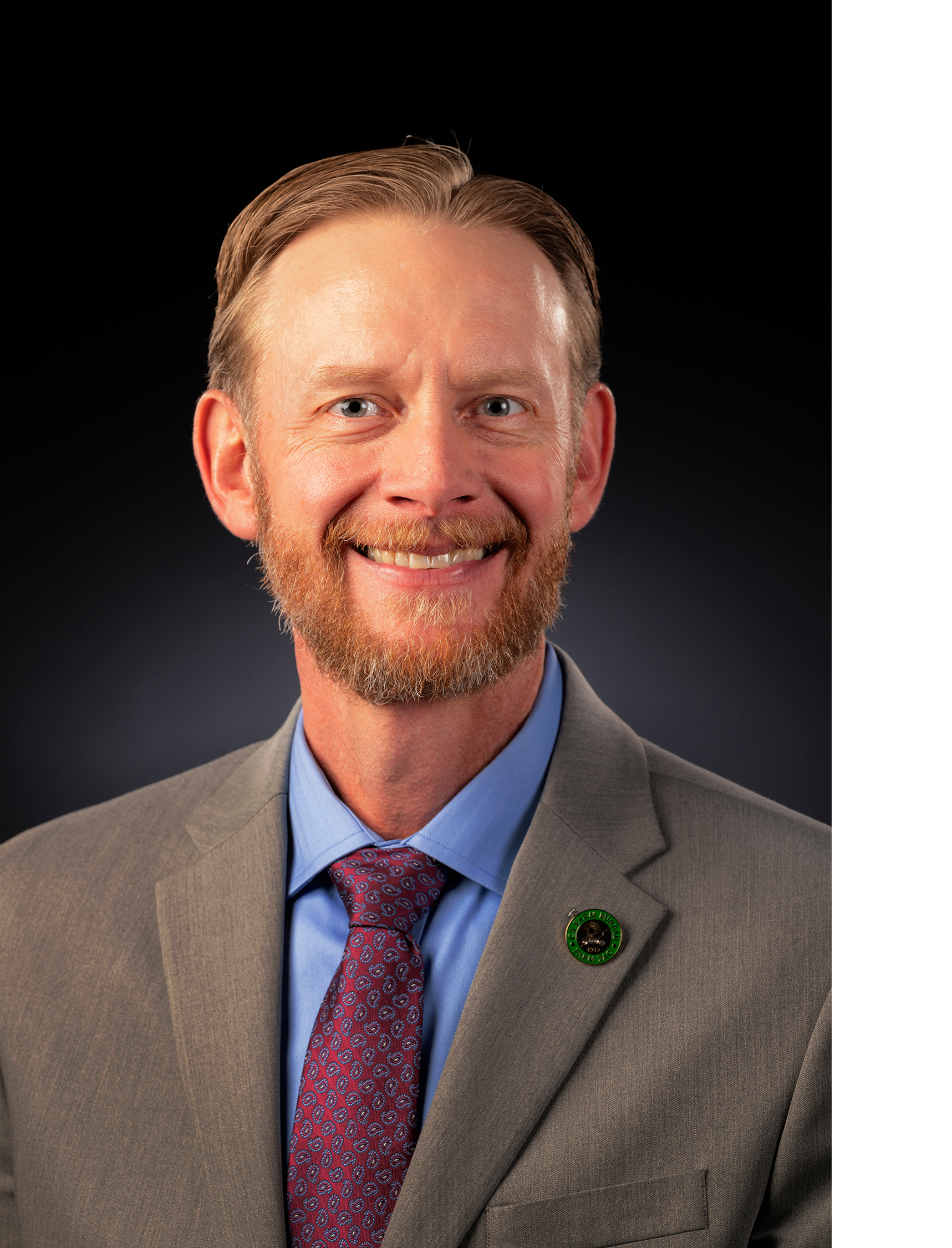Inside Farm Bureau: Farm leader shares thoughts on balancing work, life

California Farm Bureau First Vice President Shaun Crook talks with Assemblywoman Esmeralda Soria, D-Fresno, to advocate on issues affecting farmers and ranchers during legislative visits last year to the state Capitol in Sacramento.
Photo/Caleb Hampton

By Shaun Crook
First Vice President
California Farm Bureau
I’m a second-generation logger and third generation in agriculture. Have you introduced yourself in a similar way? Ever thought about why you did so or the importance of it? We are often defined by our occupations. This isn’t necessarily good or bad, but what are the ramifications?
For most of us in production agriculture, farming is not just a job but a way of life. It is an amazing opportunity that God has entrusted us with. But if you are like me, finding balance is a constant struggle and a battle I’ve probably lost more than I have won.
I apologize if you expected forest management wisdom in this commentary, but I wanted to take this opportunity to talk about the struggles we don’t usually want to talk about.
 With all that we produce in California, time is still our most precious commodity. I’ve known for a long time that quality time together is my wife’s love language, as that is what is most important to her. Yet I have been guilty of sacrificing my presence with my family for working long hours in the woods, taking on too much extra work—and yes, even for Farm Bureau.
With all that we produce in California, time is still our most precious commodity. I’ve known for a long time that quality time together is my wife’s love language, as that is what is most important to her. Yet I have been guilty of sacrificing my presence with my family for working long hours in the woods, taking on too much extra work—and yes, even for Farm Bureau.
The Bible talks a lot about the value and importance of hard work and service to others, and I agree completely. But we should also be mindful of the sacrifices our loved ones make because of our decisions and because we “have to work.”
In agriculture, “have to work” is often unavoidable. Many times, the livelihood of our livestock or crops is completely
dependent on our presence, and that means we have to work. But what about the times when things on the farm aren’t necessarily relying on our being there? Do we go to work anyway and miss that baseball game or performance at school? Our loved ones need us there more than we realize. And when we are there, are we really there or is our mind on the work that isn’t getting done?
I guess I started to have this midlife crisis—even though at 47 years old, I realize I am past midlife and should have had this crisis at least seven years ago. When it comes to raising children, we have all heard “it goes fast,” “don’t blink” and a thousand other sayings. As an officially “old head,” I can tell you those sayings are true.
I first ran for the state Farm Bureau office more than eight years go. At that time, our oldest son hadn’t started high school, and our youngest could barely throw a baseball. With a couple of blinks, Gregory is a college graduate working on the East Coast, and Walker is about to start his first year at Cal Poly. Velina went back to school and is about to complete her bachelor’s degree. I couldn’t be more proud of my family, but I do have regrets that I wasn’t more present.
One huge change since we started this journey together is that my father passed away two and half years ago. Dad started our logging company and was in charge until the very end. He battled prostate cancer for about four years. He missed an appointment for a prostate screening test because he “had to work.” By the time his cancer was diagnosed, it was advancing to Stage 4. While I can’t be certain he would be here today if he had made it to that appointment, I can be certain that everything at work that day would have been fine if he had missed work to go to the doctor.
The other huge part of all this is we have bad habits of not talking about succession planning. When our patriarch gets diagnosed with advanced cancer, we want to be positive, and talking about how things will go without him doesn’t seem appropriate. It feels too late at that point. But not talking about these things with our families does more harm than good. As hard as it is, someone must start the conversation. Our partners at Nationwide, with the Land as Your Legacy program, have great tools to help in this process. But someone must have the courage to start the conversation.
It’s hard to separate life from work, but it is crucial for our well-being and state of mind to be present for our families. Do we live to work or work to live? Sometimes I must be reminded that being a logger is what I do and not always who I am. I want to first be remembered as a Christian, a husband and a father. Then I can be remembered as a logger.
Shaun Crook, who operates a family timber business in Tuolumne County, is first vice president of the California Farm Bureau. He can be reached at scrook@cfbf.com.




